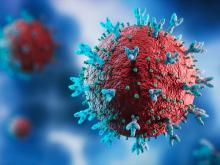Research In Real Time News
News Releases, Research in Real Time, Science
A new way to fight diseases? Stop viruses from stealing nutrients
A new way to fight diseases? Stop viruses from stealing nutrients
Research in Real Time, Science, World
Tulane scientist part of major study on sea-level change from Greenland melt
Tulane scientist part of major study on sea-level change from Greenland melt
Health, New Hires, News Releases, Research in Real Time, Science, World
Renowned neuroscientist will lead Tulane Brain Institute as new Presidential Chair
Renowned neuroscientist will lead Tulane Brain Institute as new Presidential Chair
Culture, Health, News Releases, Research in Real Time, Science
Tulane researchers to help Louisiana schools launch proactive violence prevention programs
Tulane researchers to help Louisiana schools launch proactive violence prevention programs
Health, News Releases, Research in Real Time, Science
Tulane chemists to create clean hydrogen fuel using water, sunlight
Tulane chemists to create clean hydrogen fuel using water, sunlight
Health, News Releases, Research in Real Time, Science
Tulane researchers to develop new Lyme vaccine with lasting protection
Tulane researchers to develop new Lyme vaccine with lasting protection
News Releases, Research in Real Time, Science, World
Apple spotlights innovative way Tulane archaeologists preserve ancient history of Pompeii
Apple spotlights innovative way Tulane archaeologists preserve ancient history of Pompeii
Culture, News Releases, Research in Real Time, Science
Tulane awarded $5 million to find out if recycled glass can help save Louisiana wetlands
Tulane awarded $5 million to find out if recycled glass can help save Louisiana wetlands
COVID-19, News Releases, Research in Real Time
New COVID-19 vaccine shows promise against Omicron variants
New COVID-19 vaccine shows promise against Omicron variants
COVID-19, Health, News Releases, Research in Real Time, Science, World
Tulane working on test to predict COVID-19 complications
Tulane working on test to predict COVID-19 complications










